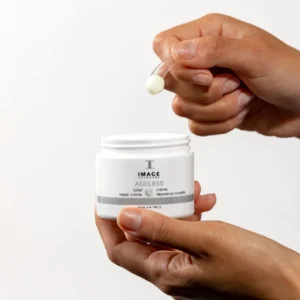Retinol has become one of the most talked about skincare ingredients over the last couple of years and for very good reason!
What does it do?
Retinol is a derivative of Vitamin A, which is a popular skincare ingredient known for its ability to help regenerate and promote cell renewal, reduce the appearance of fine lines and wrinkles, improve skin texture, tone and more. The reason it is so popular, is because it is good for just about everything, even helping to clear Acne.
Should I be cautious about using Retinol?
People are often scared when we mention introducing Retinol into their skincare routine because of social media scare-mongering! Retinol is a potent ingredient and if used incorrectly, it can damage the skin barrier or even burn the skin. However, this can happen with many other skincare ingredients too if (as previously mentioned) you used them incorrectly! If you’ve purchased a Retinol product and not been given any advice on how or when to use it, and simply slapped it on your face every day then yes, you probably had an adverse reaction. But when used right, Retinol really is the holy grail.
How do I use it?
You have to build up your skins tolerance to Retinol, often by starting to use it just once a week. Then gradually increasing to twice a week, 3 times a week and so on. It is also best to use it at night as you don’t want to be exposed to the sun after use. Even when introduced slowly, some more sensitive skin types may experience some temporary dryness/redness but with Image Skincare formulations which we absolutely LOVE at TBR, this isn’t usually the case.
Now, because the skincare industry loves to keep us on our toes, not only does it come in different strengths, but Retinol isn’t the only form of Vitamin A either. Some other common Retinoids you may have heard of or find in your skincare are:
Retinyl Palmitate and Retinyl Acetate – You will find these in more shop bought products as they are less potent and stable so therefore easier to manufacture and gentler on the skin.
Bakuchiol – A plant derived alternative to Retinol, offering similar benefits with less irritation, ideal for more sensitive/younger skin.
Retinaldehyde (Retinal) – More potent that Retinol and works faster but may be more irritating initially
Retinoic Acid (tretinoin) – Prescription strength only for more severe skin concerns, usually prescribed by your GP or through online prescription services.
What Strength do I need?
People often become fixated on strengths and percentages when really, it is about the Formula itself. A higher percentage doesn’t always mean its better. Not all Retinoids are created equally and they vary in their potency and how quickly they are converted into Retinoic Acid (the active form). The effectiveness also depends on the other ingredients such as emollients and humectants and how these could counteract the effects of the Retinoid itself. Focus on the type of Retinoid instead of the percentage.
What product is right for me?
We have a few different options at TBR from overnight masks, to boosters that can be added to other creams/serums. It is important that we see your skin and find out a bit more about your skins health before we advise on our Retinol products which is why we offer in depth skin consultations in the salon. You can find more information on our Facial services page.

